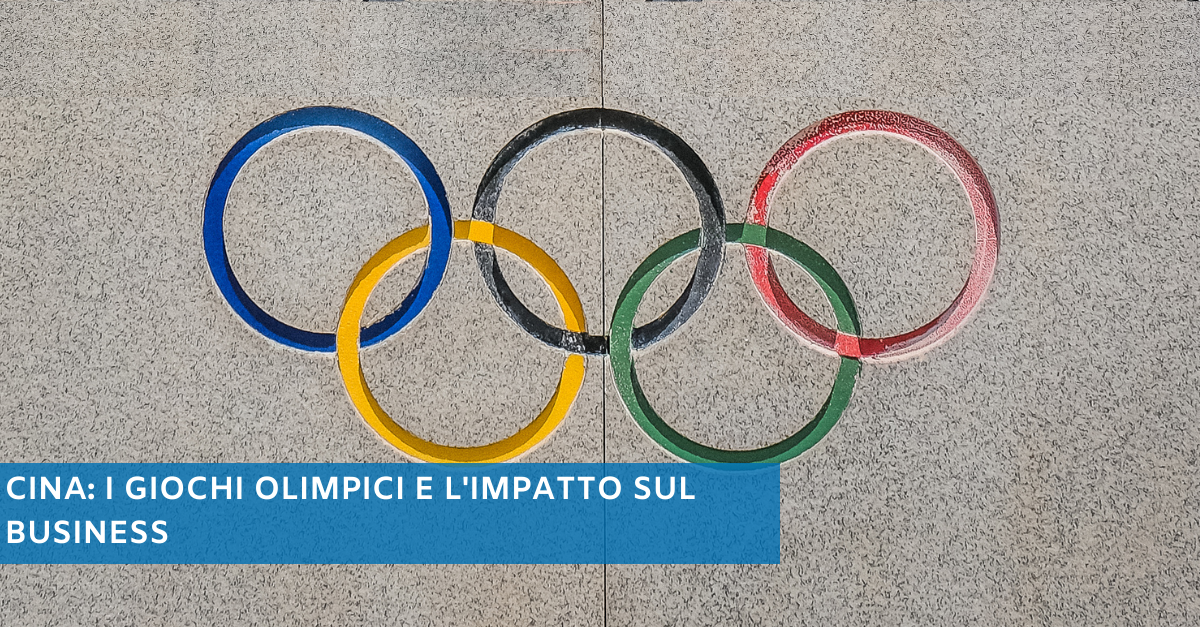Cina: i Giochi Olimpici e l’impatto sul business
[ENG BLW]
I Giochi Olimpici Invernali in corso a Pechino rappresentano un ulteriore stimolo alla pratica sportiva in Cina, un trend che negli ultimi anni è stato fortemente incoraggiato dal governo: nel 14° Piano quinquennale (2021-2025) la Cina si è impegnata a diventare una potenza sportiva di primo livello e a rendere il settore sportivo uno dei pilastri dell’economia nazionale. Lo sport è diventato ormai parte integrante della routine quotidiana di molti cinesi, complici la crescente voglia di benessere ed il desiderio di intraprendere una vita sana e attiva.
Questo ha avuto un impatto significativo anche sul business, in crescita, dell’abbigliamento sportivo. Le vendite al dettaglio di abbigliamento sportivo dovrebbero registrare un tasso di crescita annuale di circa il 14% nei prossimi cinque anni, sfiorando i 600 miliardi di CNY nel 2025. Nike e Adidas, i due leader nelle vendite di abbigliamento sportivo, si dividono oltre il 42% del mercato cinese in questo settore, ma la concorrenza dei marchi locali è in crescita anche grazie al rinnovato patriottismo dei consumatori cinesi.
Inoltre, le Olimpiadi Invernali hanno ulteriormente favorito le vendite di equipaggiamenti per sport invernali in Cina: dall’apertura delle Olimpiadi Invernali, sulla piattaforma di e-commerce di Jingdong (JD) le vendite di equipaggiamenti per lo sci sono raddoppiate rispetto all’anno precedente e le vendite di occhiali da sci hanno visto un aumento di ben 15 volte; forti incrementi sono stati registrati anche nelle vendite di pattini di figura e mazze da hockey.
L’Ufficio nazionale di statistiche segnala che l’obiettivo di coinvolgere 300 milioni di cinesi in attività sportive invernali è stato ampiamente superato. Per loro sono stati recentemente costruiti 803 impianti sciistici e 654 piste da pattinaggio, un’industria del tempo libero invernale che promette un giro d’affari da 120 miliardi di euro all’anno alla quale già partecipano diverse imprese italiane. Tra i fornitori delle Olimpiadi Invernali, si sono distinte, in particolare, la Prinoth di Vipiteno con i suoi macchinari battipista e la TechnoAlpin di Bolzano con i suoi impianti di innevamento che hanno assicurato la neve artificiale sulle piste dello sci e dello snowboard.
The Olympic Winter Games in Beijing represent a further stimulus to sporting practice in China, a trend that in recent years has been strongly encouraged by the government: in the 14th Five-Year Plan (2021-2025) China has committed itself to becoming a power first level sports and to make the sports sector one of the pillars of the national economy. Sport has now become an integral part of the daily routine of many Chinese people, thanks to the growing desire for well-being and the desire to undertake a healthy and active life.
This has also had a significant impact on the growing sportswear business. Sportswear retail sales are expected to grow yearly by around 14% over the next five years, reaching nearly CNY 600 billion in 2025. Nike and Adidas, the two leaders in sportswear sales, have together more than 42 % of the Chinese market in this sector, but competition from local brands is also growing thanks to the renewed patriotism of Chinese consumers.
Moreover, the Winter Olympics further boosted sales of winter sports equipment in China: since the opening of the Winter Olympics, on the Jingdong (JD) e-commerce platform, sales of ski equipment have doubled over the year previous and ski goggle sales saw a 15-fold increase; strong increases were also recorded in the sales of figure skates and hockey sticks.
The National Bureau of Statistics reports that the goal of involving 300 million Chinese in winter sports has been largely exceeded. 803 ski resorts and 654 skating rinks have recently been built for them, a winter leisure industry that promises a turnover of 120 billion euros a year in which several Italian companies already participate. Among the suppliers of the Winter Olympics, in particular must be mentioned Prinoth of Vipiteno with its snow grooming machines and TechnoAlpin of Bolzano with its snow-making systems that ensured artificial snow on the ski slopes and snowboard slopes.
Fonte: Elaborazioni a cura di IC&Partners Asia – ufficio Shanghai, news@icpartners.it – riproduzione riservata








